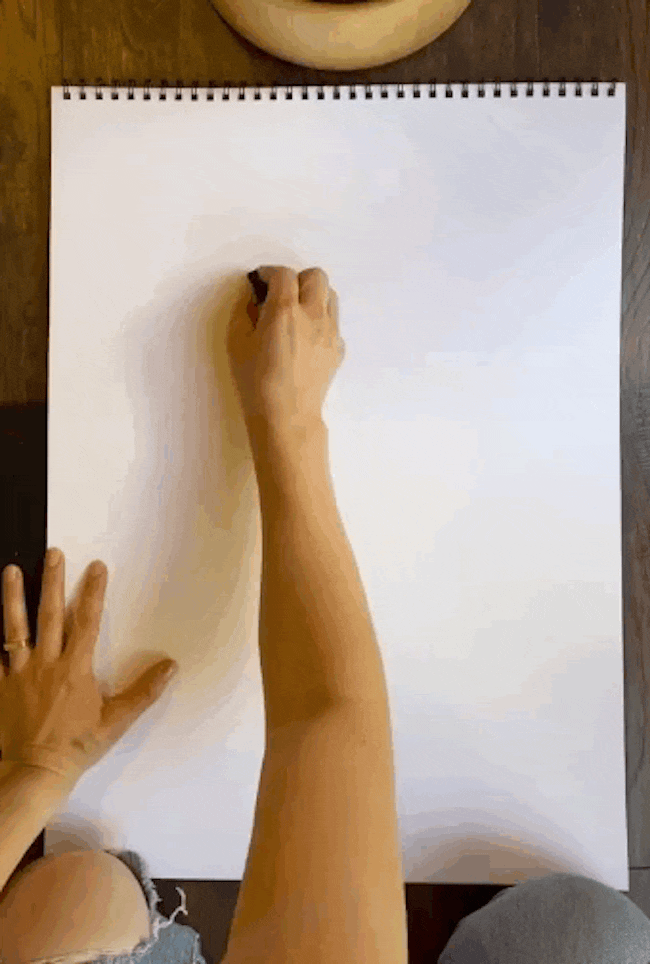 greed, hatred and delusion, not to be greedy, hateful and deluded. |
SMILE AT THE MIRROR
////////////////////
How will life be different once the COVID-19 pandemic is over?
Let me answer this question with a story.
One day Mulla Nasruddin saw a man sitting in a pall of gloom.When asked for the reason behind his sorrow, the man replied that his life had become so miserable that he had collected all his money in a small bag and was wandering around seeking happiness.All of a sudden, Nasruddin picked up the man's bag and dodging him disappeared from his sight.The man was running all around to catch Mulla and get his bag back which was his only possession.After some time Nasruddin placed the bag at a place where the frantic man could see it and then hid himself behind a tree.When the man found his bag he forgot his grief and began dancing with joy.Mulla murmured – ‘This is one way to bring happiness to a sad man?'
We often don’t value simple things life has taught us, as we take them for granted.
We even take our life for granted because we believe that we can protect it with the help of our resources.
How many of us used to value simple things of life like going to the office, meeting friends, walking on the roads, enjoying a party with friends, watching a movie, going to a market or mall, enjoying a holiday at a tourist place, or even hug and shake hands with our loved one?
Suddenly, we are told that doing any of these things might cost us our lives.
After corona-virus, we have understood how fragile our life can be and how blessed we have always been without our conscious knowledge.
Once the corona pandemic is over, we shall be back to our normal life once more.
It would be the same life we have always led and cursed.
However, we are now going to value everything in our life more, since we have realized their worth by losing it today without knowing whether we are ever going to get it back.
Life is never going to be the same again since we would never be able to forget the pains and fears we are witnessing today.
Whenever we recollect our today, we would always be able to feel blessed tomorrow, just for being alive.
/////////////////////B - NOT TELL , BUT FOR YOURSELF DECIDE WHAT TO DO....TEACHER WILL PROVIDE CLARITY......NO POPE IN BDHISM
////////////////////NO MISTAKE, JUST A LEARNING EXPERIENCE
//////////////////////MAKING DECISION -DONT ACT OUT OF SELFISHNESS, ILL WILL , STUPIDITTY OR FEAR- WISDOM TEACHING-CLEAR MIND, MAKE PEACE
//////////////////HEART OF KARMA IS YOUR INTENTION -2 PARTS 1/ MOTIVE X EMO SOURCE
2/ GOAL
/////////////////
friendship
| |
This week I spoke with Brian Hare, a professor in evolutionary anthropology, psychology, and neuroscience at Duke University. He recently co-authored the book Survival of the Friendliest with Vanessa Woods, a research scientist, writer, and journalist.
The book argues that friendliness is what has made us so successful as a species and is key to our long-term survival. Underlying this is something that humans, bonobos, and dogs all have in common: we all self-domesticated. We made the choice to become more tolerant and evolved to become better at reading the cooperative intentions of others.
But our inclination towards friendliness is not all roses. Hare discusses in the interview below.
What is the link between friendliness and self-domestication? It seems like some animals can show friendly behavior — but not all animals are self-domesticated.
The thesis of the book is that friendliness is a winning strategy in life. A lot of the big changes, where a set of organisms or an organism becomes monumentally more successful, is really a result of friendliness. Friendliness allows for a new form of cooperation.
Your question is right: You can have a species become more friendly as a result of some change to their psychology, or even their physiology, that allows them to want to be together, or more tolerant, without resulting in self-domestication. Self-domestication is friendliness that affects development in order to have friendliness expressed. And when you change early developmental pathways, it has a big impact on not just behavior, but morphology and physiology as well.
Is self-domestication what sets us apart from other members of the Homo genus?
Usually when people ask, Hey, why are we different from other animals? you would say, Well, we have big brains; we have language; we have culture. All those explanations don’t work, though, if you know we were not alone on the planet until 50,000 years ago. There were at least four other human species that were running around on planet Earth with us.
They also had all those features. They all had big brains, were cultural, and likely linguistic. So, those features can’t be why we are the only humans left standing. That’s where self-domestication comes in. The idea that we went through selection for friendliness helps explain how we could have out-competed and survived long after other human species.
I think it’s the secret to our success. I think we are the friendliest species of human to ever evolve.
When we think about this idea of selecting for friendliness, is it fair to say that — in this one specific way — we are more like dogs than we are other Homo species?
Yes. Relative to other extinct human species, we are more doglike, in that we’ve gone through the same process where natural selection favored individuals that were friendlier — especially to strangers that we recognized as being in our group. That we can recognize someone we’ve never met before as part of our group based on some marker of identity is something that is completely unique to our species.
We’re like dogs in that we have this new way to be friendly. Dogs have their own new way to be friendly — friendly toward people and attracted to people. That’s where we are the same. We have increased in our friendliness, just like dogs increased in their friendliness relative to wolves.
Speaking of, I really enjoyed these lines: “We did not domesticate dogs. The friendliest wolves domesticated themselves.” Do you predict there are other animals who are currently on the road toward self-domestication?
I think we are in the biggest self-domesticated event in the history of life.
I think that because you have increasing numbers of humans living in urban areas. We also have cities that are aging, in that a lot of the ecosystems that were torn apart as cities were built; they’re recovering. There’s a lot of places where there’s what is known as refugia, or places where animals can live, hide, and survive. These are little islands within cities.
We’re creating an environment for species animals that are able to live near us, and even be friendly, in the sense of being non-aggressive. The animals that live near people, like deer and coyotes, want to make their home near where people are. Living near people comes with the advantage of being near a concentration of food and a certain degree of safety.
You can’t stop evolution any more than you can stop gravity. We are going to lose biodiversity as humans develop different areas, yes. But the species that are able to be adaptive and flexible enough to thrive around humans — the individuals that are friendly and attracted to humans — they can do extremely well.
The book also gets into how friendliness contributes to our evolutionary fitness. Friendliness makes you more attractive to mates, so friendly people have more opportunities to pass down those traits. So, if that’s true, where are there still combative, rude, unfriendly people?
That’s a great question. Our argument is that we are built for friendliness. We, all of us, carry in our brains a neurological network that allows us to learn from each other, communicate with each other — cooperate with each other in ways that are beyond what even the most advanced animal can do. This explains why we can rapidly innovate and improve technology; why we are able to survive in such large groups and figure out ways to govern ourselves. We can solve problems that might otherwise seem intractable.
The flip side is that, the same mechanism that allows us to do amazing things, it kind of has an off-switch — and we all have that off-switch. We are built such that, if we feel that our identity or our group identity is threatened, we can sort of not see the people who are threatening our group, or those we love, as fully human.
We’re not aware that this is going on, necessarily. But the network that is responsible for all the amazing things we do in being friendly, it shuts down; it dampens. It doesn’t apply to those that we feel threaten our group. It allows us to exclude them from our moral behavior. It sets up a situation where horrific violence and harmful actions become acceptable.
The question is: How do we build a friendlier future by understanding that mechanism? How can we immunize ourselves against having that switch get flipped?
To that point, the epilogue notes that the first draft of this book was finished in 2016. Then you and Vanessa decided to take two more years to research and rewrite. What happened?
Well, we were in 2016, and we were so happy. We had turned in 90 percent of our book and were like, we’re basically done! This is great; we’re exhausted.
It was October, which was right before the election, and our book ended with a warning of sorts, saying, look. In finding out that we’re built for friendliness, we can also see the mechanism that allows for the worst of human nature. It’s not a cultural phenomenon. All people have this mechanism, and it’s going to resurface if institutions aren’t built to acknowledge its existence and immunize against its impact.
We left it warning that dehumanization, or seeing people as not fully human, can be a big problem, and it will show up again. It’s not something that is relegated to a less civilized history.
After the election we were watching all of the vitriol and dehumanizing language, and we thought, Gosh, this isn’t so hypothetical anymore. We may need to educate ourselves and offer more in this book — we need to offer solutions because a warning isn’t enough. We dedicated ourselves and spent two more years doing just everything we could to learn.
I was very struck by a study you reference, which found that people who saw a greater difference between animals and humans were more likely to dehumanize immigrants, and people who believe animals are more similar to humans were less likely to dehumanize. And then I looked at the cover of the book, and I was thinking about this idea of “rediscovering our common humanity.”
Is it fair to say that rediscovering our common humanity is just one step towards reclaiming our friendliness? Is perhaps the second step reclaiming our identity as just one part of the animal kingdom?
Yes. There’s this wonderful diagram that has these two views of humanity. One has humans at the top of a pyramid, and then there’s all these different animals below. That’s the anthropocentric view of the world that we’re all very familiar with.
The alternative to that is this other figure, which is described as the ecological view of humans. It’s a circle, and humans are there as one of the species in a circle of species.
I do think that we are the secret to our own success, and the reason we’re still here and so successful is our friendliness. But that has its own problems and dangers associated with it, and that our relationship with, and who we perceive, nature and especially other animals, is one of the key ways we can be a friendlier species. I think it does speak to the need to take our relationship with animals and nature very seriously.
////////////////////////////B STREAM OF CONSCIOUSNESS GOES FROM LYF TO LYFX NO SELF X BODY IS VEHICLE OF STREAM OF CONSCIOUSNESS
///////////////////////

/////////////////////////////6 TYPES OF STORY CONFLICT PSNT-SS
 |
////////////////////FACE MASK RELIABILITY TEST



No comments:
Post a Comment